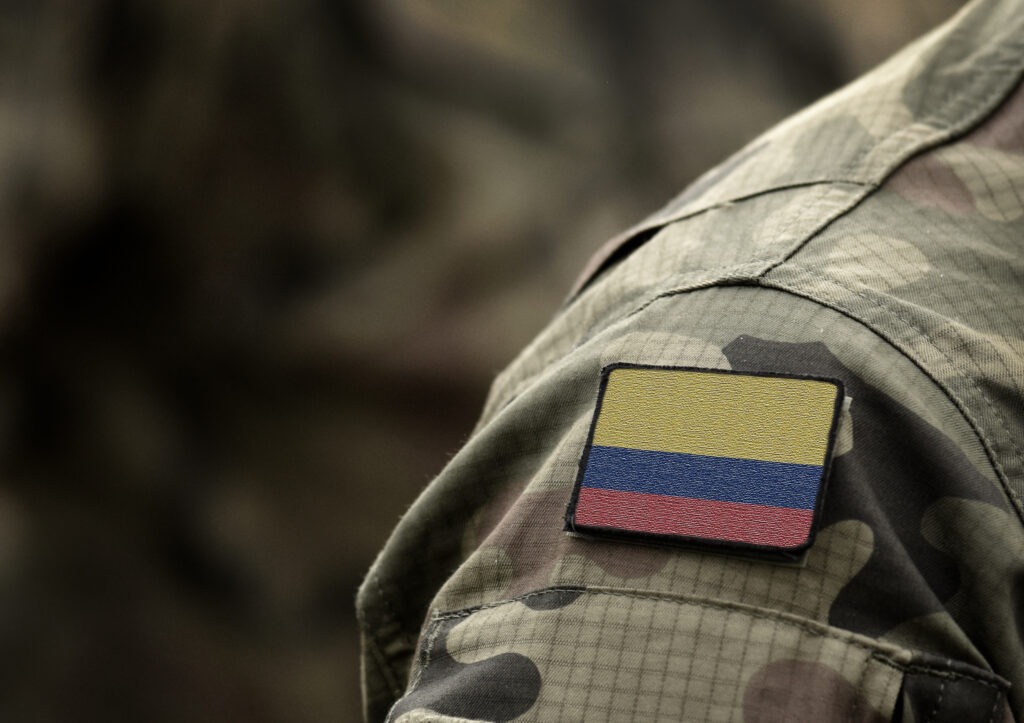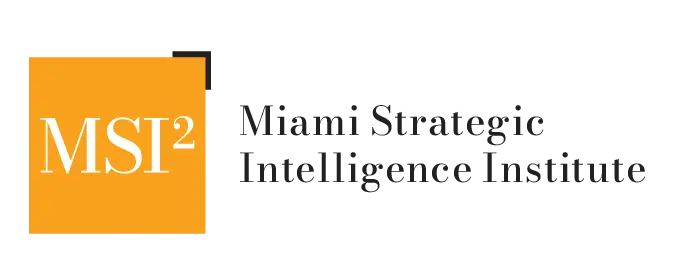14 Apr President Petro’s Lack of Leadership Will Lead CELAC to Failure
By,
William Acosta, SME, MSI² & Jesús Daniel Romero, Co-Founder and Senior Fellow, MSI²
Colombian President Gustavo Petro will assume the pro tempore presidency of the Community of Latin American and Caribbean States (CELAC) on April 9, 2025, at a critical moment for the region.
The promises of integration and cooperation that CELAC represents are being threatened by both internal and external challenges. Petro, with his “Total Peace” agenda, has raised expectations—but his leadership is already under scrutiny due to poor results in Colombia’s security and governance, as well as his failure to build effective alliances within CELAC. This analysis explores how Petro’s approach could jeopardize the organization’s mission to promote stability and development across Latin America and the Caribbean.
CELAC in Context
Founded in 2010, CELAC aims to foster unity among its 33 member states in the face of shared challenges. Under Petro’s leadership, the organization enters a complex global environment marked by the U.S.-China trade war and conflicts such as the Gaza crisis. Petro proposes to strengthen ties with Asia, Africa, and Europe in an attempt to reduce dependence on the U.S. However, internal tensions—such as the controversy over the “Tegucigalpa Declaration”—reveal the bloc’s difficulties in achieving consensus.
Petro’s Failed Leadership
Petro’s leadership has come under fire due to his ineffective management of Colombia’s internal affairs—failures that could have regional repercussions during his tenure at CELAC.
Security Mismanagement
Petro’s “Total Peace” policy, aimed at negotiating with armed groups, has been heavily criticized. While the government claims a reduction in homicides, organizations such as the Fundación Ideas para la Paz (2023) argue that this statistic masks the growing power of armed groups and a surge in coca cultivation. According to ACLED (2024), violence persists in areas like Catatumbo, with forced displacements and attacks against security forces. The removal of military commanders has created leadership voids, undermining institutional trust and allowing narcotrafficking to resurface. This internal chaos raises doubts about Petro’s ability to lead a coherent regional security agenda within CELAC.

Kristi Noem’s Visit and Petro’s Contradictions
The visit by U.S. Secretary of Homeland Security Kristi Noem to Colombia on March 27, 2025, exposed contradictions in Petro’s ideological stance on key issues such as drug trafficking and regional security. During their meeting at the Casa de Nariño, Noem reported that Petro spent significant time criticizing the U.S. government and referred to members of the Tren de Aragua gang as “misunderstood” individuals who need “more love”—a statement suggesting an unacceptable tolerance toward organized crime (Newsmax, 2025). Although Petro denied the comments, blaming linguistic misunderstandings and emphasizing his focus on tackling the social roots of crime, the controversy intensified doubts over his capacity to lead with resolve. The incident not only strained relations with a key ally like the United States, but also projected an image of weakness in the face of regional security challenges—further damaging Petro’s credibility as CELAC’s pro tempore president.
Narcotrafficking Links to Xiomara Castro
The situation is further complicated by allegations involving the family of Honduran President Xiomara Castro. InSight Crime (2024) has pointed to links between the Zelaya family and narcotrafficking, raising concerns about her leadership. Castro’s decision to end the extradition treaty with the U.S. in 2024 has only deepened suspicions, suggesting an effort to shield her inner circle. This vulnerability undermines Honduras’s capacity to contribute meaningfully to a regional crime strategy—one of CELAC’s key priorities under Petro.
The “Tegucigalpa Declaration” Controversy
The “Tegucigalpa Declaration,” adopted at CELAC’s 9th Summit (April 9, 2025, Honduras), was rejected by Argentina and Paraguay, which denounced its approval without consensus. The document criticized U.S. immigration policies and was declared invalid by these nations, which accused CELAC of capitulating to authoritarian regimes. The division—driven by Castro and Petro’s leadership—threatens the cohesion of the bloc.
The 9th CELAC Summit
The summit, hosted by Castro, addressed climate change, food security, and regional integration, but revealed a disconnect between political elites and grassroots needs. The absence of key leaders like Gabriel Boric and Nicolás Maduro, along with criticisms of Trump-era tariffs, underscored existing political and economic tensions. Petro proposed an interconnected electric grid and regional food sovereignty, but a lack of consensus rendered these initiatives largely aspirational.
Anti-Imperialist Discourse and Policy Proposals
Petro, along with leaders such as Claudia Sheinbaum and Lula da Silva, pushed an anti-imperialist narrative, criticizing U.S. sanctions on Cuba and Venezuela. Petro has advocated for diversifying trade with China and the EU, but his support for controversial regimes risks alienating more moderate countries and deterring foreign investment. Lula, with his BRICS agenda, is attempting to straddle both worlds—further complicating the bloc’s unity.
Implications for the Trump Administration
Petro’s stance is likely to challenge the Trump administration’s foreign policy priorities—especially in light of recent incidents like Colombia’s rejection of deportation flights. Senator Marco Rubio’s visit to the region reflects growing U.S. concern over the resurgence of leftist blocs. Discussions about reevaluating aid to allies that fail to defend democratic values—including potential visa cancellations—underscore these tensions.
Implications of the Socialist Agenda
Petro’s socialist agenda could deepen polarization within CELAC, making consensus increasingly difficult and sowing distrust among investors. His commentary on international conflicts like Gaza risks fueling diplomatic controversy and diverting attention from urgent domestic and regional problems. Without a balanced approach, these policies may exacerbate inequality and further fragment the bloc.
Summary and Conclusion
Petro’s presidency of CELAC faces serious obstacles stemming from his poor governance record in Colombia and the bloc’s growing internal divisions. His “Total Peace” strategy has failed to deliver structural change, while incidents like the Noem controversy highlight contradictions in his rhetoric. The narcotrafficking ties in Honduras and the fallout from the “Tegucigalpa Declaration” reflect CELAC’s fragile foundations. The organization needs leadership that transcends ideological divides and focuses on measurable outcomes. Without this, CELAC risks squandering its potential as a driver of regional progress, ultimately threatening the stability and prosperity of Latin America.
References
Fundación Ideas para la Paz. (2023). Assessment of Security in Colombia.
ACLED. (2024). The Paradox of ‘Total Peace’ in Colombia.
InSight Crime. (2024). The Zelaya Family of Honduras Under Scrutiny.
Newsmax. (2025). Kristi Noem on Petro’s Comments During Colombia Visit.
